ADULTS MUST ESCAPE THE "SAFE ZONE"
According to a study by the United Nations Children's Fund (UNICEF), 1 in 5 children and adolescents are bullied online and 3/4 of them do not know where to seek help. Master Nguyen Tu Anh, specializing in child and adolescent psychology, founder of the Happy Parenting project, said this is a fairly high and worrying rate, not to mention cases of bullying but not being aware and therefore not reporting.

Parents need to pay attention to detect when their children show abnormal psychological and mental symptoms.
"During childhood and adolescence, being a victim or perpetrator of online bullying can lead to serious and long-term psychological problems. For example, children can suffer from depression, anxiety, disruptive behaviors in real life, unable to maintain healthy social relationships, affecting their academic performance and the formation and perception of themselves in the right way," said Master Tu Anh.
To protect children from accidents
Regarding online bullying, Ms. Tu Anh believes that everyone must be educated about the 2019 Cyber Security Law, along with civilized and positive behaviors and self-protection skills on social networks. "Because children cannot learn these things without education, guidance and practice, both from family and school, through many different forms, such as in the form of life skills," the female master explained.
Ms. Tu Anh also noted that what happens online is quite secretive, and if children do not share, it is difficult for adults to know. For that reason, this parent of two young children advises adults to leave their "safe zone" to update their children's interests, and to understand that banning the use of social networks often only brings negative consequences in children's behavior such as sneaking around, hiding or lying.
"Parents and teachers need to pay attention to any changes in children's behavior, daily routines and conduct to recognize abnormalities and provide support when necessary. At the same time, monitor children's use of the Internet properly, such as setting up features to block harmful content and websites, teaching children to face useful content and the opposite of useless content, even nonsense. Then, children will proactively share and seek us out when they have difficulties, regardless of the environment," Master Tu Anh concluded.
ADD "DIGITAL VACCINES", "VIRTUAL FENCES"
According to Dr. Nguyen Vinh Quang, majoring in educational management, Director of Mr.Q International Vocational Education Organization, there are 5 important factors contributing to the increase in online bullying behaviors, including the popularity of technology and social networks; anonymity and virtual space; loss of control over information once content has been posted; lack of awareness and education; psychological and social problems.
"Online bullying is a big challenge not only in Vietnam but also in many countries like the UK and the US," said Mr. Quang.
According to Dr. Quang, online bullying can take place in a number of common forms such as sharing bad information, even fake information using technology; harassing by text messages; insulting on social networks; bullying through online games, emails, blogs...
To combat this problem, Dr. Quang recommends that children receive "digital vaccines" through regular educational programs at school and at home about online violence and appropriate protection and response measures. At the same time, to truly create "antibodies", children also need to learn how to proactively use social networks with consideration and multiple perspectives, instead of just posting photos or commenting unconsciously, which leads to unnecessary conflicts.
Prevent cyberbullying without giving up internet access
Many people who are victims of cyberbullying are so scared that they close all their social media accounts or even avoid using the internet for a while. According to UNICEF, internet access has many benefits. However, like many things in life, it comes with risks that you need to be aware of and protect yourself from.
“When you are experiencing cyberbullying, you may want to delete certain apps or go offline for a while to give yourself time to recover. But turning off the internet is not a long-term solution. You have done nothing wrong, so why should you suffer? Turning off the internet may even send the wrong signal to bullies, encouraging their unacceptable behaviour. We all want cyberbullying to stop, which is one of the reasons why reporting cyberbullying is so important. We need to think about what we share or say that could hurt others. We need to be kind to each other online and in real life. It depends on all of us,” UNICEF recommends.
"Virtual fences", or safe online environments for children, also need to be built, Mr. Quang said. Specifically, the cybersecurity team and national firewall system can develop behavioral control tools, block sensitive keywords... to minimize harmful content. Management agencies also need to provide a clear policy framework and regulations on how to handle online bullying, while encouraging teachers and school staff to intervene promptly when there is relevant information.
"In dealing with bullying, it must always be quick and timely. This requires close communication channels, especially between the three parties: family, school and student, which is still lacking in many places. When children encounter online bullying, it is obvious that parents and teachers do not know clearly, but we must ask ourselves if children do not come to us for help," Dr. Quang raised the issue.
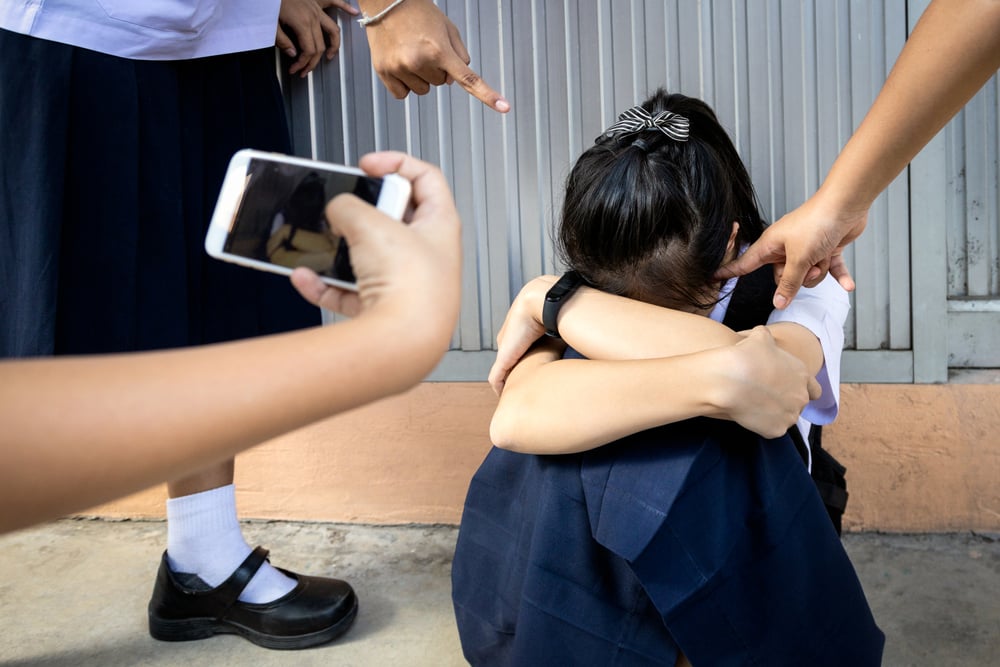
Cyberbullying is becoming more common among students.
Regarding the viewpoint of some parents banning their children from using phones and social networks, Dr. Nguyen Vinh Quang assessed that this is not an effective decision. According to him, if parents remove technology from their children's lives, it is no different from removing their own children from future development opportunities. "Let children access it in a supervised manner, even create conditions for them to actively monitor themselves instead of imposing what they have to do," Dr. Quang suggested.
DO N'T WAIT FOR CONSEQUENCES TO HAPPEN BEFORE YOU TAKE ACTION.
According to psychologist Vuong Nguyen Toan Thien (Children's Hospital, Ho Chi Minh City), adults should not wait until consequences occur before dealing with them because at any level, their children have already been hurt. Parents cannot control or filter the entire internet environment to ensure absolute safety for their children. Therefore, there should be skills education programs so that children know how to protect themselves when using the internet.
"Parents should guide their children on how to select information to receive, limit personal information when sharing, how to respond when being bullied... to be able to use the internet safely and effectively. To do that, parents need time to interact, talk and share with their children. When building a good family relationship, children can easily share the problems they are facing so that parents can promptly help when needed," said Mr. Thien.
At the same time, according to a psychologist at the City Children's Hospital, when you discover that your child has abnormal mental symptoms, you need to take them to a hospital, clinic, or psychological center for intervention.
Source link



![[Photo] Prime Minister Pham Minh Chinh meets with General Secretary and President of China Xi Jinping](https://vstatic.vietnam.vn/vietnam/resource/IMAGE/2025/4/14/893f1141468a49e29fb42607a670b174)

![[Photo] Reception to welcome General Secretary and President of China Xi Jinping](https://vstatic.vietnam.vn/vietnam/resource/IMAGE/2025/4/14/9afa04a20e6441ca971f6f6b0c904ec2)
![[Photo] General Secretary To Lam holds talks with General Secretary and President of China Xi Jinping](https://vstatic.vietnam.vn/vietnam/resource/IMAGE/2025/4/14/b3d07714dc6b4831833b48e0385d75c1)
![[Photo] National Assembly Chairman Tran Thanh Man meets with General Secretary and President of China Xi Jinping](https://vstatic.vietnam.vn/vietnam/resource/IMAGE/2025/4/14/4e8fab54da744230b54598eff0070485)










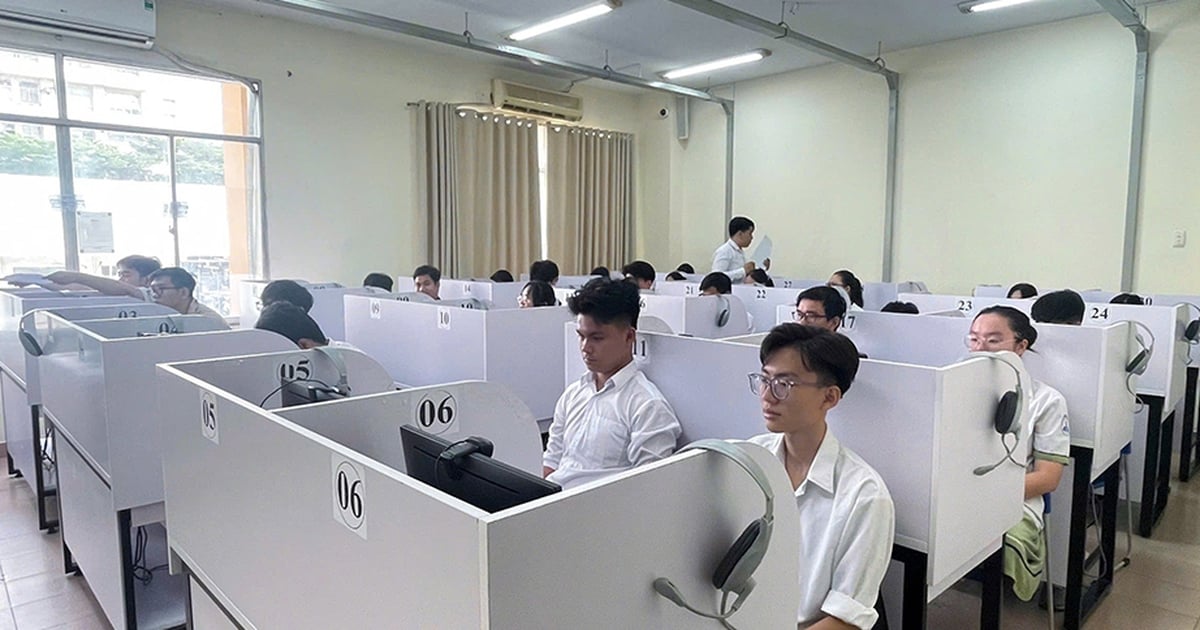
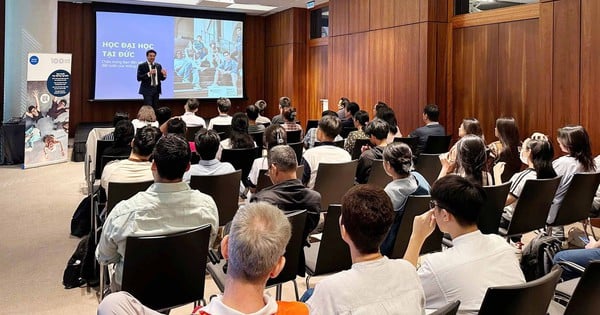


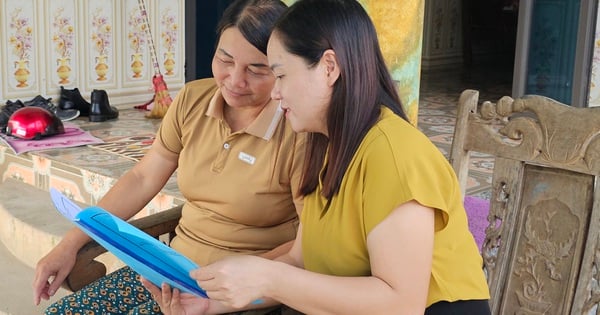
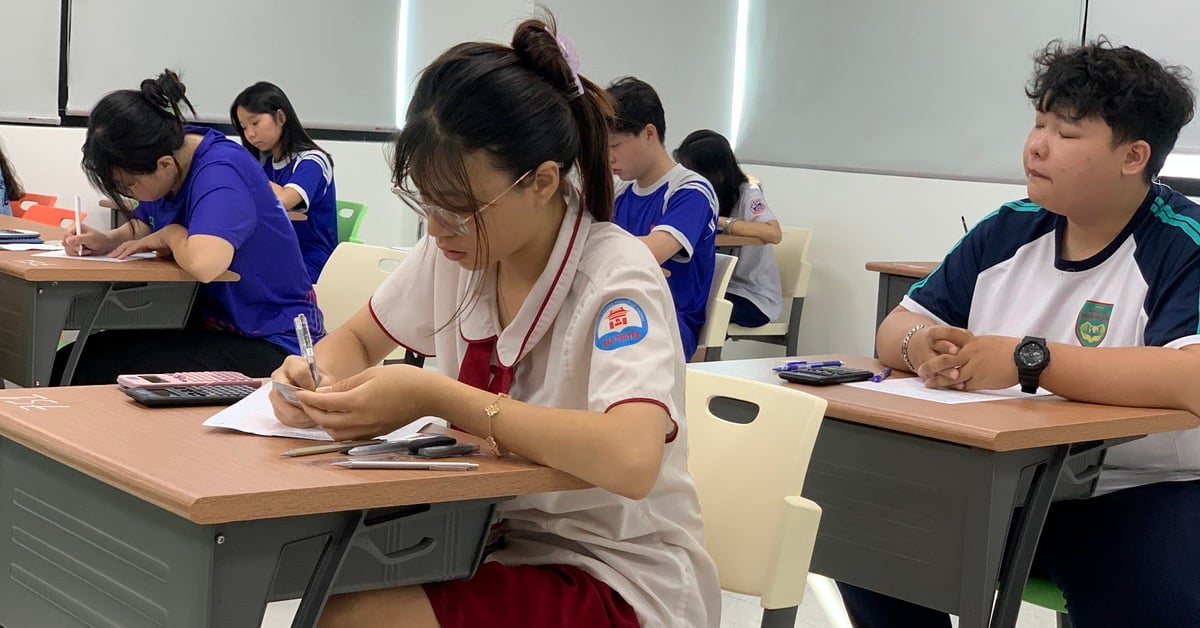






































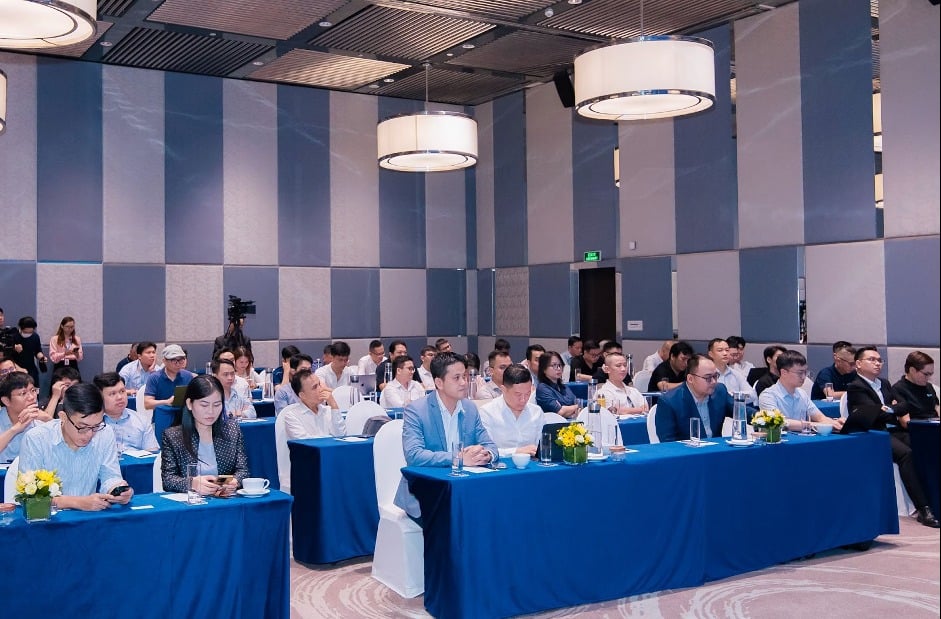















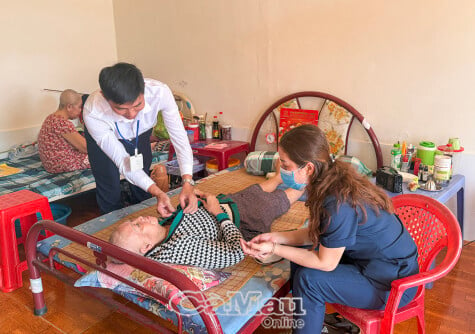
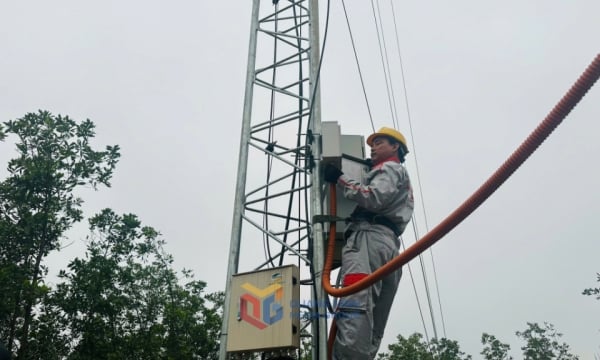



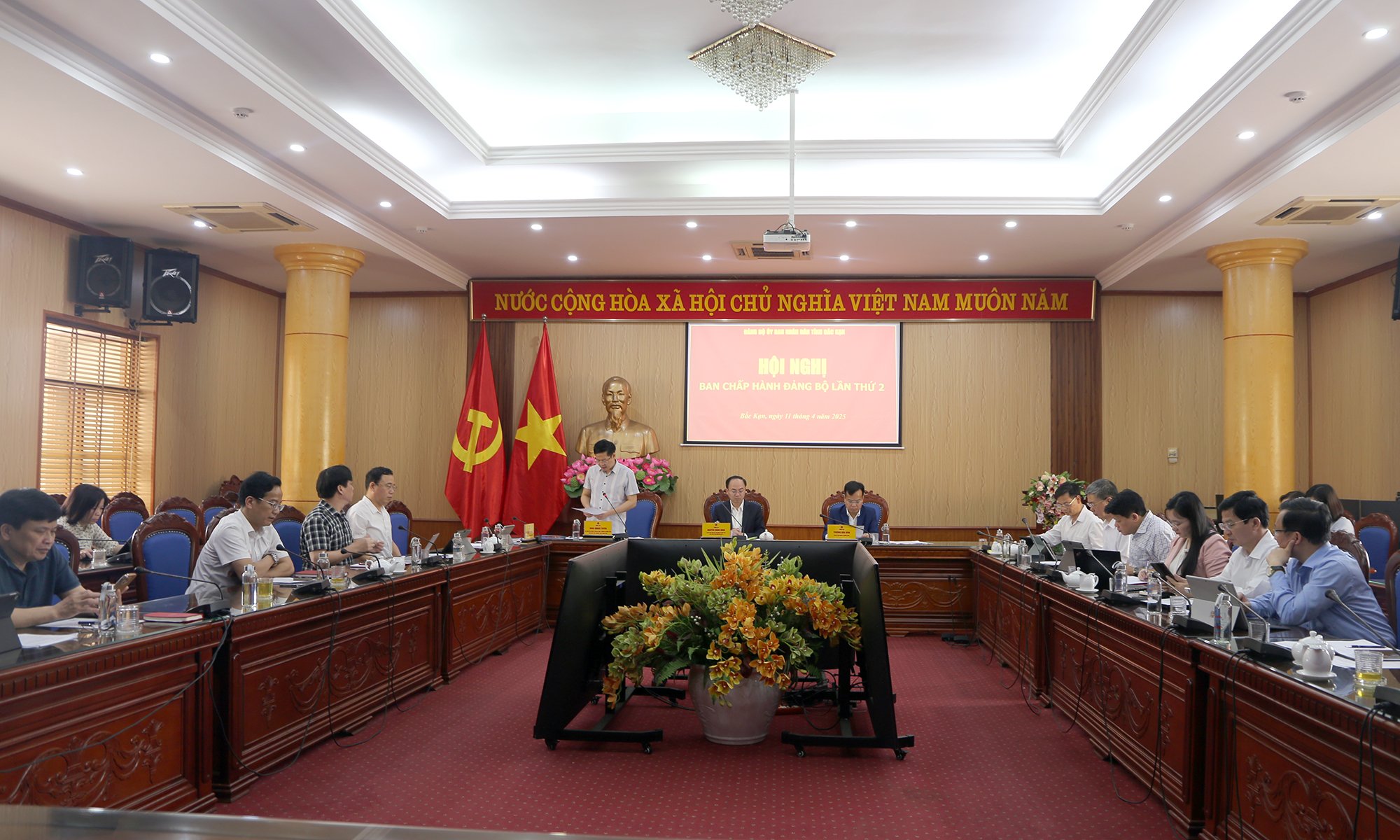
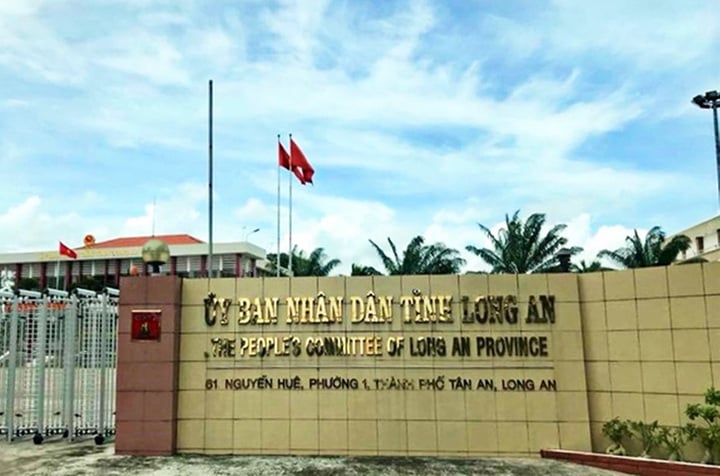










Comment (0)